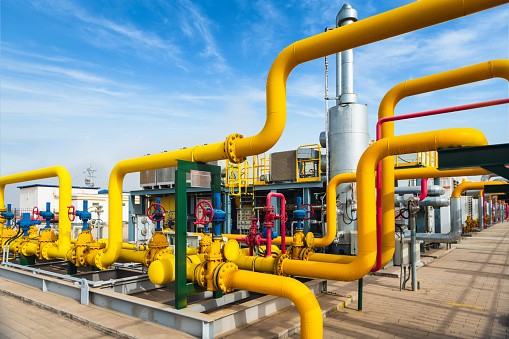The piping industry plays a crucial role in sectors like oil and gas, petrochemicals, power plants, and construction. Piping systems are essential for transporting fluids and gases, and their design, installation, and maintenance are vital for the smooth operation of industrial facilities. As the demand for skilled piping professionals continues to grow, enrolling in a piping course can be your pathway to a rewarding career. OnlinePiping.com offers comprehensive piping courses that equip you with the skills needed to excel in this dynamic field.
Why Choose a Career in Piping Engineering?
- High Demand for Skilled Professionals: The global demand for energy and infrastructure development is driving the need for skilled piping engineers. From designing complex piping systems to ensuring compliance with industry standards, piping professionals play a key role in various projects.
- Lucrative Job Opportunities: Piping engineers, designers, and technicians are well-compensated for their expertise. With the right training, you can secure high-paying roles in industries such as oil and gas, petrochemicals, pharmaceuticals, and power generation.
- Diverse Career Paths: A piping engineering background opens doors to various roles, including piping design, stress analysis, project management, and quality control. Whether you’re interested in hands-on design work or overseeing projects, a piping course provides the foundation you need.
- International Opportunities: Piping engineering skills are in demand worldwide. A recognized certification from a reputable training provider like OnlinePiping.com can enhance your employability and allow you to work on global projects.
What Will You Learn in a Piping Course?
OnlinePiping.com offers a range of piping courses that cover essential topics to prepare you for a successful career. Here’s an overview of what you can expect to learn:
- Fundamentals of Piping Design: Gain a solid understanding of piping components, materials, and design principles. Learn how to create piping layouts, select appropriate materials, and ensure that designs meet industry standards.
- Piping Codes and Standards: Familiarize yourself with international piping codes such as ASME, ANSI, and API. These codes ensure that piping systems are safe, reliable, and meet regulatory requirements.
- Pipe Stress Analysis: Learn the basics of pipe stress analysis, including how to evaluate the impact of temperature, pressure, and external forces on piping systems. This skill is crucial for ensuring that piping systems operate safely under various conditions.
- 3D Modeling and Drafting: Master popular 3D modeling software used in the industry, such as AutoCAD, CAESAR II, and E3D. These tools allow you to create detailed piping models and visualize designs before construction.
- Piping Fabrication and Installation: Understand the processes involved in the fabrication and installation of piping systems. This includes knowledge of welding, pipe fitting, and inspection techniques to ensure high-quality workmanship.
- Project Management: Learn how to manage piping projects effectively, from planning and design to execution and maintenance. This includes budgeting, scheduling, and coordinating with other engineering disciplines.
Why Choose OnlinePiping.com for Your Piping Course?
OnlinePiping.com is a leading provider of piping courses designed to meet the needs of both beginners and experienced professionals. Here are some key reasons to choose OnlinePiping.com for your training:
- Expert Instructors: Learn from industry veterans with years of experience in piping design and engineering. The instructors at OnlinePiping.com bring real-world insights into the classroom, providing you with practical knowledge that goes beyond textbooks.
- Flexible Learning Options: With OnlinePiping.com, you can learn at your own pace. The courses are available online, allowing you to access course materials anytime, anywhere. Whether you’re a full-time student or a working professional, you can fit learning into your busy schedule.
- Hands-On Learning: The piping courses at OnlinePiping.com emphasize practical, hands-on training. You’ll work on real-world projects and assignments that simulate the challenges faced by piping professionals in the industry.
- Comprehensive Course Material: The course material is carefully curated to cover all aspects of piping engineering. You’ll receive access to video tutorials, e-books, interactive quizzes, and project files that enhance your learning experience.
- Certification: Upon completing a piping course at OnlinePiping.com, you’ll receive a recognized certification that validates your skills and boosts your employability. This certification demonstrates to employers that you have the knowledge and expertise to excel in piping engineering.
- Continuous Support: OnlinePiping.com offers continuous support to its learners. Whether you have questions during the course or need career guidance after completing the training, you can rely on the support team for assistance.
How to Get Started with Your Piping Course at OnlinePiping.com
Getting started with your piping course at OnlinePiping.com is easy. Simply visit the OnlinePiping.com website, browse the available courses, and choose the one that best suits your needs. You can enroll online, and once registered, you’ll have immediate access to the course materials.
Conclusion
A piping course from OnlinePiping.com is more than just a learning opportunity—it’s a gateway to a thriving career in piping engineering. With expert-led training, hands-on projects, and flexible learning options, you’ll gain the skills needed to design, manage, and maintain complex piping systems with confidence.
Don’t miss the chance to advance your career. Enroll in a piping course with OnlinePiping.com today and take the first step toward becoming a skilled piping professional. Visit OnlinePiping.com to explore your options and start your journey in piping engineering!



